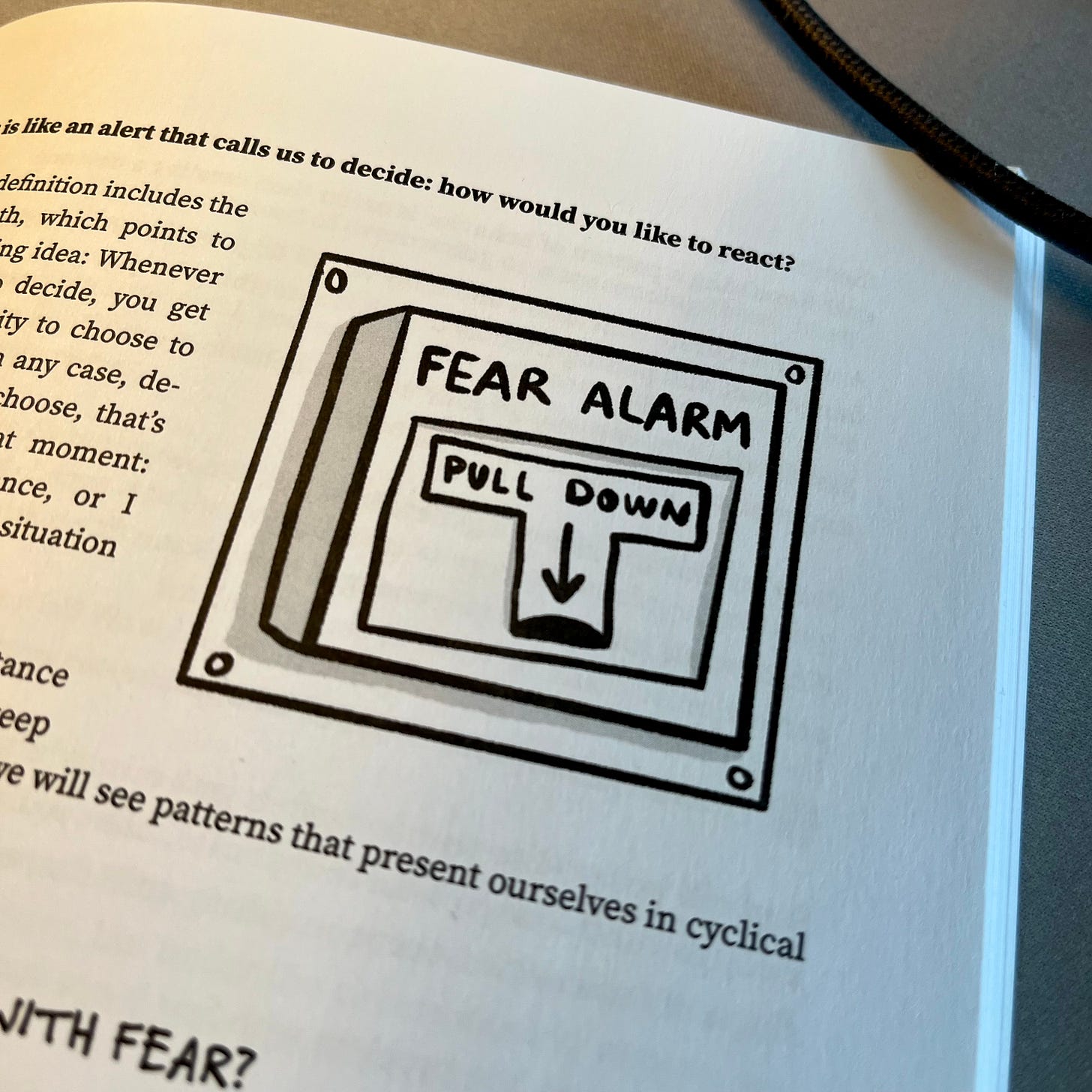👉🏼 Fear is Not Your Enemy—But It’s Not Always Your Friend
Fundamentals of Growing Fearless – Part 4
You might feel you already know what fear is. And maybe you even think the definition doesn’t really matter.
But remember, fear is what makes us stuck, suffer, and stagnate.
Psychological Fear is a mental pattern built to protect us.
When the pattern becomes outdated, it often blocks our growth instead.
Pema Chödrön said:
“Fear is a natural reaction to moving closer to the truth.”
From my experience, fear usually works like this:
We perceive a situation
We evaluate it
We compare it to past experiences
We decide — ultra-fast.
It sounds logical.
But our perceptions can be wrong, our evaluations misguided, and our comparisons irrelevant.
The result? Faulty decisions based on old fears.
A simple example:
I see a dog running toward me.
I assume danger (because I was bitten years ago).
I panic and climb a tree.
Later, I realized the dog was just being friendly.
Most of the time, we overreact to situations that aren’t life-threatening.
Fear acts like an internal alarm, but the real work is choosing how to respond.
Back to Pema, getting closer to the truth means breaking the walls we built to protect ourselves from change. When we are not limited by our protection tactics, we can express ourselves more authentically.
It means learning to move with life, not resist it — like a sailboat catching the wind.
When we accept that fear often pulls from the distant past, we can start seeing through it.
Many fears are like outdated software, still running quietly in the background.
When we recognize they no longer apply, we can "uninstall" them — and regain clarity, joy, and freedom.
🌱 Freedom starts by finding whether fear is protecting us or limiting our growth.
Two other important considerations about fear:
We’re not always consciously aware of our fear patterns.
For example, perfectionism and pessimism are often rooted in fear.
Some perfectionists take pride in their pursuit of greatness, ignoring that beneath it, they may be afraid of disappointing others.
Just imagine how much closer to greatness they could be if they were not limited by the opinions of others.Fear is often praised as a motivator, but that doesn't make it healthy.
Fear can push us to act.
And yes, in some cases, it protects us.
But using fear as a constant motivator keeps us in a survival state.
It increases stress, narrows our vision, and makes us vulnerable to manipulation by stronger, louder forces.
I believe it's better to learn to achieve without fear — with presence, trust, and clarity.
Because if fear is your main motivation, you’re always one bully away from losing yourself.
Check the previous episode of this series:
Can you achieve Fearlessness?
If you’re aiming for success in any form, there’s one thing you’ll need to get clear about before you get there: your relationship with fear.
Stay fearless and explore your freedom!
With love,
Jose.
p.s. Have you noticed any outdated fears that you're ready to uninstall?





I really love how you addressed fear. Many creators and coaches (myself included) exploit fear as the ultimate motivator, when in fact, fear causes great damage to the human body.
"But using fear as a constant motivator keeps us in a survival state" — absolutely true! What does that alone do to our nervous system?
We should be truly careful with how we use fear—and how we talk about it.